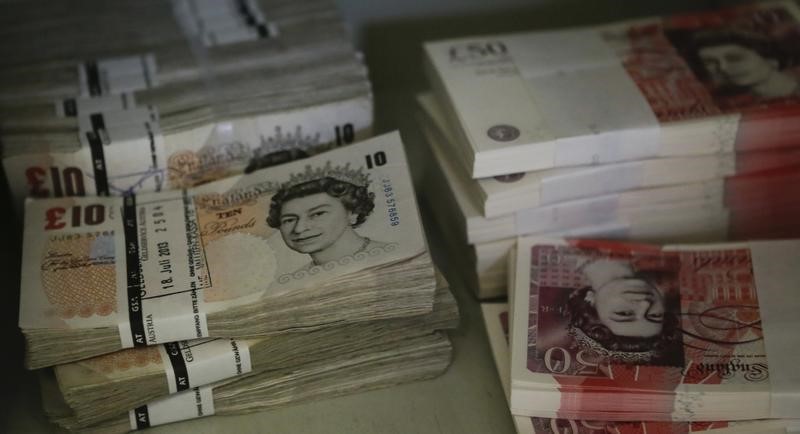Gold prices set for weekly gains on dovish Fed outlook; silver near record high
Investing.com - The pound touched a fresh seven-year low against the dollar on Wednesday after data showing that the U.K. unemployment rate fell unexpectedly in November but pay growth slowed, indicating that interest rates are likely to remain on hold for now.
GBP/USD hit lows of 1.4126, the weakest since March 2009 before recovering slightly to trade at 1.4164, little changed for the day.
The Office for National Statistics said the unemployment rate in the U.K. fell to 5.1% in the three months to November, its lowest since the three months to January 2006.
Analysts had expected the jobless rate to hold steady at 5.2%.
The number of people employed rose by 267,000, the third biggest increase on record.
But data on pay growth was weaker the report showed, indicating that the BoE will wait for longer before hiking interest rates.
Average weekly earnings excluding bonuses, wages rose by 1.9%, compared to expectations of a 1.8% rise. This was the weakest growth since February last year.
Including bonuses, wages rose by 2.0% in the three months to November, missing forecasts for a gain of 2.1% and slowing from 2.4% in the previous three month period.
The pound weakened across the board on Tuesday after BoE Governor Mark Carney said policymakers want to see faster U.K. growth and stronger inflation before raising interest rates.
Carney said collapsing oil prices and an "unforgiving" global environment meant that any interest rate increase could be delayed adding that he did not have a "set timetable" for raising interest rates.
Elsewhere, sterling hit fresh one-year lows against the euro before trimming back losses. EUR/GBP rose to 0.7756, the most since January 2015, before pulling back to trade at 0.7713.
